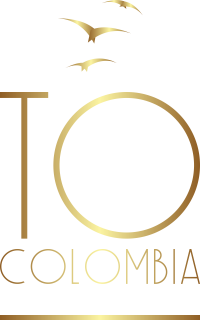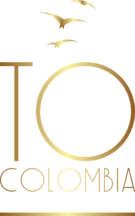Keep in Mind
A. Money
– The local currency is the Colombian Peso (COP).
– You may enter or leave Colombia with a maximum of US$10,000 in cash or its equivalent in any currency. Anything over this amount must be declared upon arrival and may be confiscated.
– U.S. Dollars and Euros can be exchanged at exchange houses and commercial banks.
– Major hotels and tourist sites accept international credit cards.
– ATMs and credit cards are more limited in rural areas. Contact your bank to make sure your cards work in Colombia.
B. Local Contacts
Fire and rescue services – Call 123
Medical emergencies – Call 123
Police – Call 112
C. Type of Plug
Please note that domestic power in Colombia is 110 volts alternating current at 60 Hertz (110V AC, 60Hz).
D. Internet
You must buy a SIM card from Claro or Movistar, which are the most recommended companies.
E. What to Bring?
It is advisable to travel with only one suitcase with what is really necessary:
o A small backpack for hiking
o A cross-body bag
o Clothing suitable for cool weather, including a pair of pants and a long-sleeved shirt
o Comfortable sportswear
o A sweater or light jacket
o Cold weather jacket
o Waterproof coat
o Swimwear
o Small towel
o A pair of hiking shoes
o Sneakers (two pairs)
o Flip-flops
o Hat/cap
o Sunglasses
o Insect repellent
o Sunscreen
o Non-plastic water bottle (thermos)
o Small personal hygiene kit and personal medications
o A small personal hygiene kit and personal medications.
o Large plastic bags to protect clothes from water and to store garbage.
o An umbrella
F. What Not to Bring
Expensive jewelry, watches and accessories that are not necessary for your trip
o Computers if they are not necessary
o Remember that comfort and traveling light is the key to enjoyment without complications.
G. Security
– Use a phone service or cab service app to book a licensed cab. Ask for help from staff at hotels, restaurants or entertainment venues.
– Avoid traveling at night
– Keep vehicle doors locked, windows rolled up and valuables out of sight even when in motion.
– Be careful if traveling alone or if traveling in or near slums.
– Use ATMs inside banks, shopping malls or other public places during business hours and avoid using ATMs on the street
– Have enough cash for each day as some places do not have ATMs.
– Avoid walking alone in isolated or deserted areas.
– Always be aware of your own safety. If you suspect that criminals have drugged you or your fellow travelers, seek urgent medical help.
– Criminals also target foreign nationals and tourists using the most popular dating apps and websites
– If traveling to Ciudad Perdida in the Sierra Nevada de Santa Marta, do so as part of an organised tour. If you travel to Tayrona National Park, don’t go inland. Stick to the beach areas and resorts.
– Criminals in Colombia are increasingly using drugs to subdue their victims. This may include the use of scopolamine or other similar drugs that temporarily incapacitate the victim. Robberies and assaults occur after victims accept food, drinks, cigarettes or chewing gum. Thieves also administer these drugs through sprays or paper handouts.
– Always check that your drink has been opened or prepared in front of you. Avoid leaving food or drinks unattended and do not accept anything from strangers.
– Avoid using your cell phone, cameras and other electronic equipment on the street.
– Make sure your personal belongings including your passport and other travel documents are always secure. Always carry photocopies with you as local authorities often conduct identity checks.
– Be alert on public transportation. Do not leave your luggage unattended, in overhead compartments or under the seat of buses as it could be stolen while you are unattended or asleep.
– Overcharging by card is common. Be careful in popular tourist areas where scammers target tourists by charging high prices for services, food and drink. Ask for a printed price list before placing an order and check for unauthorised transactions on your account statements. Pay close attention when your cards are handled by others and cover the keypad with one hand when entering your PIN.
– Ayahuasca or Yage tourism is a growing industry, especially in the jungle regions of Colombia. Shamans perform psychedelic spiritual cleansing rituals with this traditional plant. Avoid participating in Ayahuasca rituals
– Demonstrations and protests take place regularly throughout Colombia. Avoid protests and rallies. If a protest occurs, leave if it is safe to do so.
– Stay in a group
– Take personal care of your belongings
– Do not carry jewelry, precious metals, weapons, ammunition, explosive or flammable or corrosive materials or objects that constitute a danger to the group or the tourist destination.
– Not to enter zones or areas that cannot exceed the limits of their individual capacities.
H. Health
– Medications: Not all medications are over-the-counter. Some may be considered illegal or a controlled substance, even if prescribed by a doctor. If you plan to bring medications, check if they are legal in Colombia. Bring enough legal medication for your trip. Bring a copy of your prescription and a letter from your physician stating
– what the medication is
– the amount you are going to take
– justifying for personal use
I. To Protect Yourself from Diseases:
- Get vaccinated against corona and yellow fever.
- Consider taking medication to prevent malaria.
- Make sure your lodging is insect-proofed
- Use insect repellent
- Wear long, loose-fitting, light-colored clothing.
J. Behavior Can Affect your Health
– Eliminate drinking alcohol before or during an activity
– Eliminating doing an activity with a hangover
K. Altitude Sickness
– Many areas are above 2500 m, including Bogotá (2640 m).
– You can suffer from altitude sickness above 2500 m, especially if you ascend rapidly.
– Altitude sickness can be life-threatening. It can affect anyone, even if they are physically fit.
– You are more at risk from altitude sickness if you:
– Have suffered from altitude sickness before
– You exercise or drink alcohol before you get used to the altitude
– Have health problems that affect your breathing
– If you plan to travel to high altitude areas, consult your doctor before you go.
L. HIV/AIDS
Take precautions if you engage in activities that expose you to the risk of infection.
M. Other Health Risks
Water-borne, food-borne and other infectious diseases are common, including
– Tuberculosis
– Typhoid
– Hepatitis
– Rabies
N. Severe Outbreaks Sometimes Occur.
To protect yourself from the disease
– Drink boiled or bottled water with sealed lids
– Avoid ice cubes in rural areas
– Avoid raw or undercooked foods such as salads
– Avoid contact with dogs and other mammals
O. Local Laws
– In Colombia, it is mandatory to carry a photo ID. If you do not want to carry your passport, a notarised copy of the photo and visa pages is acceptable.
– Do not get involved with illegal drugs.
– Prepare your own luggage and carry it with you at all times. Do not carry items for other people.
– It is illegal to take photos of military bases and strategic places.
P. Border Measures
– If you are over 18 years of age, you must be fully vaccinated against COVID-19 for at least 14 days to enter Colombia.
– Before entering or leaving Colombia, all travelers must complete an online form (‘Check-Mig’) on the Migración Colombia website (Spanish). This form must be completed between 24 hours and one hour before flight departure.







